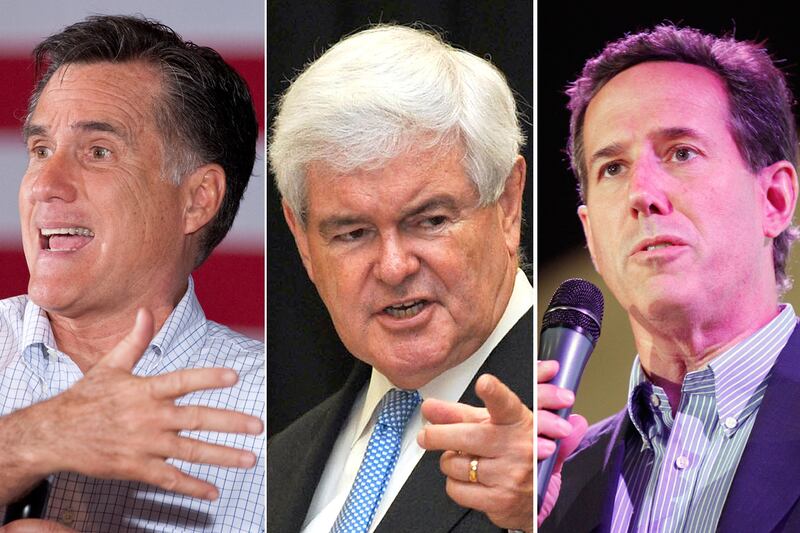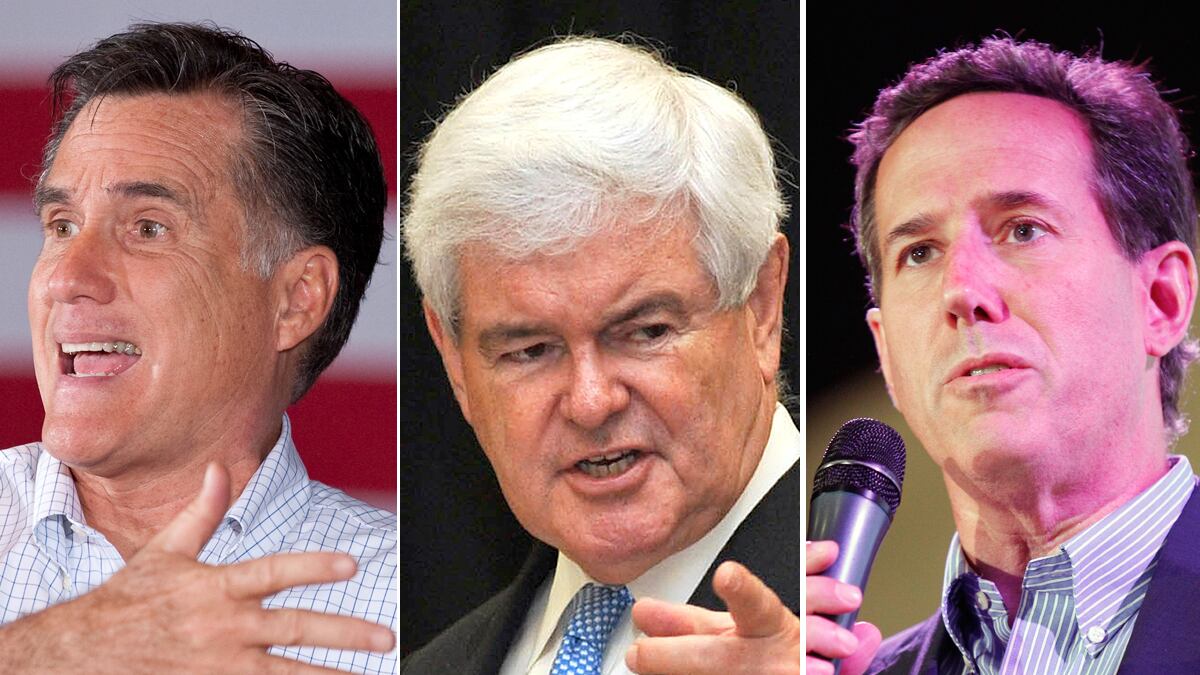Louisiana has survived hurricanes and pirate kings—now it must deal with Republican presidential candidates.

With Saturday’s GOP primary on the bayou, Republican contenders are frenetically shucking each other for voters. Newt Gingrich has spent the better part of the past two days in Cajun country, Rick Santorum has barnstormed up and down the state, and Mitt Romney is coming to Shreveport and a suburban New Orleans shopping mall Friday. Even Ron Paul is getting back on the trail.
While only 20 of the state’s 46 delegates are at stake, the contest will mark a major turning point in the race. It will be Romney’s last opportunity to prove that he can win in the Deep South, and Santorum’s last chance to significantly close the delegate gap before the campaign moves up north. Even Gingrich is holding on to a last slim hope of unseating Rick Santorum as the anti-Romney candidate.
Romney may have snatched all of the delegates from Virginia, where only he and Ron Paul were on the ballot, but so far he’s lost every state or region that’s culturally southern, from North Florida to Southern Illinois. With the Republican contest about to sweep through Yankee strongholds like Wisconsin and New York, Louisiana represents the only chance for Romney to show that he has appeal in the Republican heart of the country, and to avoid the prospect of a humiliating shutout.
Winning Louisiana is a much bigger deal for Gingrich. Once again dismissed as politically dead, he has been camped out in the state for days, hoping to pull off one more miracle. But he’s lagging in third in the polls, and if they hold up, he may not even gain any delegates out of Saturday’s primary.
But here’s where things get tricky. While the Santorum campaign wants Gingrich to drop out—John Brabender, the former Pennsylvania senator’s chief strategist, is fond of saying that the former speaker is “fading quickly” (and the poll numbers appear to bear that out)—they’d like him to stick around through the weekend. Louisiana’s peculiar rules require that a candidate get 25 percent of the vote in order to receive any delegates. Right now, Santorum is the only Republican who is a lock to reach that threshold—if Romney can’t stay above the magic number, he won’t get any of those 20 delegates.
There are other, stranger threats to Romney’s viability in the state. Louisiana has a whopping nine candidates on the ballot, including also-rans like Michele Bachmann and Rick Perry, third-party defectors like Buddy Roemer and a guy named Randy Crow. More candidates mean more options for voters to scatter their choices. While Roemer told The Daily Beast that voting for him “would be a wasted vote, everybody knows that I’m not running as a Republican” because he’s now pursuing the nomination of the independent group Americans Elect, the former governor and favorite son could still tally a significant number of votes in his home state. There’s a precedent for this kind of hometown love: Rudy Giuliani received almost 3.5 percent of the vote in New York in the 2008 Republican primary, even though he had dropped out of the race weeks before. If Roemer gets only half of that, he could have a real impact in the distribution of delegates.
All of these swampy scenarios set the table for the high stakes Wisconsin primary on April 3. While Washington D.C. and Maryland also vote that day, Wisconsin is shaping up to be the next key contest where it may become clear if Mitt Romney can finally shake off Rick Santorum. The state awards 42 delegates, 18 of which are winner-take-all on a statewide basis and the remaining 24 are distributed three apiece to the winner of each of the state’s eight congressional districts.
More importantly, it is a swing state that would give Santorum a chance to build momentum before what Brabender called “half time,” a three-week pause in the campaign without a single contest. During this period, campaigns can refresh their coffers, focus on delegate math and may be even have another debate or two. But the battlefield will be frozen in the longest pause in the race since Iowa and it is vital for both Romney and Santorum to grab the momentum going into this period.
Afterward, the race will focus on Santorum’s home state of Pennsylvania, which, along with several other northeastern states, holds its contest on April 24. If Santorum wins both Wisconsin and Pennsylvania—which will also be closely contested in November—he could be ready to for long, grueling convention fight. But first he must keep Romney from claiming a Southern win and Gingrich from getting back on a credible path.






